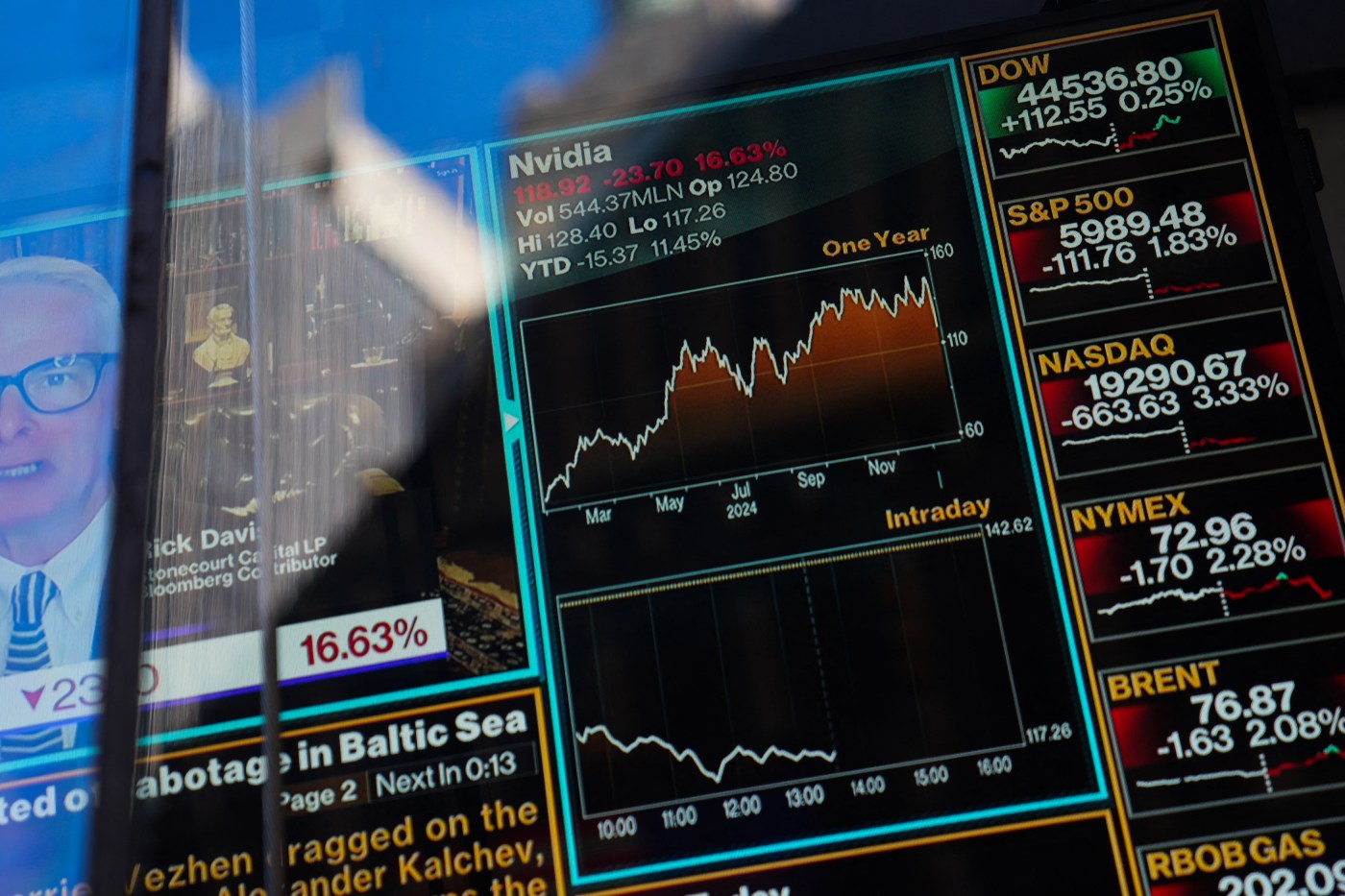
Tech stocks routed: Entry of Chinese AI competitor rattles market; Nvidia sinks nearly 17%
NEW YORK — Wall Street’s superstars tumbled Monday as a competitor from China threatens to upend the artificial-intelligence frenzy they’ve been feasting on.
The S&P 500 dropped 1.5%, dragged down in large part by a 16.9% fall for Nvidia. Other Big Tech stocks also took heavy losses, and they pulled the Nasdaq composite down 3.1% for its worst loss in more than a month.
The damage was focused on AI-related stocks, while the rest of the market held up much better.
The Dow Jones Industrial Average rose 289 points, or 0.7%, and the majority of U.S. stocks climbed. But anyone holding an S&P 500 index fund, which are found in many 401(k) accounts, felt the pain because of how influential those tech giants have become on indexes.
The shock to financial markets came from China, where a company called DeepSeek unveiled a large language model that can compete with U.S. giants but at potentially a fraction of the cost. DeepSeek had already hit the top of the chart for free apps on Apple’s App Store by Monday morning, and analysts said such a feat would be particularly impressive given how the U.S. government has restricted Chinese access to top AI chips.
Skepticism, though, remains about how much DeepSeek’s announcement will ultimately shake the economy that’s built around the AI industry, from the chip makers making semiconductors to the utilities hoping to electrify vast data centers gobbling up computing power.
“It remains to be seen if DeepSeek found a way to work around these chip restrictions rules and what chips they ultimately used as there will be many skeptics around this issue given the information is coming from China,” according to Dan Ives, an analyst with Wedbush Securities.
DeepSeek’s disruption nevertheless rocked AI-related stocks worldwide.
In Amsterdam, Dutch chipmaking equipment company ASML slid 7%. In Tokyo, Japan’s Softbank Group Corp. lost 8.3% to pull closer to where it was before leaping on an announcement trumpeted by the White House that it was joining a partnership to invest up to $500 billion in AI infrastructure.
And on Wall Street, Constellation Energy lost more than a fifth of its value, 20.8%. The company has said it would restart the shuttered Three Mile Island nuclear power plant to supply power for data centers for Microsoft.
It’s a sharp turnaround for the AI winners, which had soared in recent years on hopes that all the investment pouring in would remake the global economy and deliver gargantuan profits along the way. Such stellar performances also raised criticism that their stock prices had gone too far, too fast.
A small group of seven such companies has become so dominant that they alone accounted for more than half the S&P 500’s total return last year, according to S&P Dow Jones Indices. They include Alphabet, Amazon, Apple, Meta Platforms, Microsoft, Nvidia and Tesla.
Their immense sizes give them huge sway over the S&P 500 and other indexes that give more weight to bigger companies. That’s why many 401(k) holders felt the pain of Nvidia’s drop, even if they didn’t know they owned any Nvidia, so long as they owned a fund that tracks the S&P 500.
All told, the S&P 500 fell 88.96 points to 6,012.28. The Nasdaq composite dropped 612.47 to 19,341.83, and the Dow Jones Industrial Average rose 289.33 to 44,713.58.
Brian Jacobsen, chief economist at Annex Wealth Management, suggested not overreacting to Monday’s sharp swings.
“It is possible that the news out of China could be overstated and then we could see a reversal of the recent market moves,” Jacobsen said. “It is also possible that the news is true, but then that would present new investment opportunities.”


